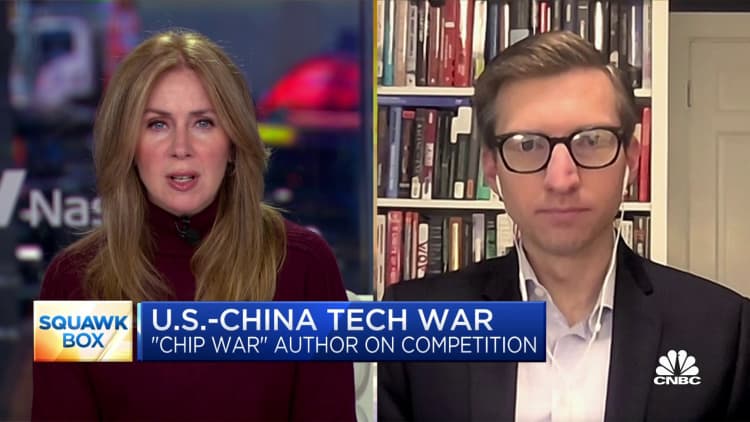[ad_1]
Digitally Generated Photographs
Wong Yu Liang | Second | Getty Photographs
China has rolled out new tips that may part out U.S. processors in authorities computer systems and servers, successfully blocking chips from Intel and AMD, the Monetary Instances reported on Sunday.
The procurement tips, unveiled on Dec. 26, at the moment are being enforced and also will impact Microsoft‘s Home windows working system and foreign-made database software program as they favor Chinese language alternate options, the report stated.
Authorities businesses greater the township degree have been ordered to buy “secure and dependable” processors and working methods, FT stated.
AMD declined to touch upon the report whereas Intel didn’t instantly reply to CNBC’s request for remark.
This comes as China has been boosting its home semiconductor trade because it seeks to cut back reliance on international know-how.
Semiconductors – essential parts present in a variety of gadgets from smartphones to medical gear – have been on the middle of a know-how conflict between the U.S. and China.

U.S. has carried out export restrictions to chop off Beijing from key semiconductor gear and applied sciences.
In October 2022, Washington launched guidelines aimed toward proscribing China’s skill to entry, receive or manufacture superior semiconductor chips amid considerations that China may use them for navy functions.
The U.S. then rolled out new laws in October 2023 to stop U.S. chip design agency Nvidia from promoting superior AI chips to China.
Since 2019, Chinese language tech firms reminiscent of Huawei and China’s largest chipmaker SMIC have been slapped with sanctions by the U.S. aimed toward proscribing their entry to superior know-how. SMIC has additionally been unable to acquire excessive ultraviolet lithography machines essential for the making of superior chips from agency ASML.
The U.S.-led tech embargo has helped increase revenues at China’s home chip gear manufacturing corporations. China’s prime 10 gear makers reported income rose 39% within the first half of 2023 as in comparison with a 12 months in the past, in accordance with Shanghai-based CINNO Analysis.
[ad_2]
Supply hyperlink

